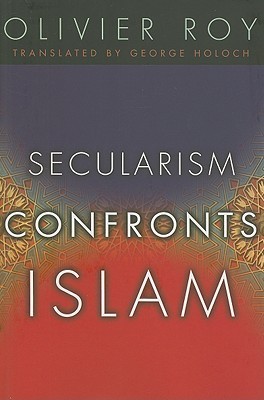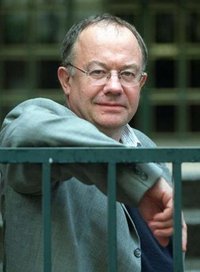
The denunciation of fundamentalism in France, embodied in the law against the veil and the deportation of imams, has shifted into a systematic attack on all Muslims and Islam. This hostility is rooted in the belief that Islam cannot be integrated into French—and, consequently, secular and liberal-society. However, as Olivier Roy makes clear in this book, Muslim intellectuals have made it possible for Muslims to live concretely in a secularized world while maintaining the identity of a "true believer." They have formulated a language that recognizes two that of religion and that of secular society. Western society is unable to recognize this process, Roy argues, because of a cultural bias that assumes religious practice is embedded within a specific, traditional culture that must be either erased entirely or forced to coexist in a neutral, multicultural space. Instead, Roy shows that new forms of religiosity, such as Islamic fundamentalism and Christian evangelicalism, have come to thrive in post-traditional, secular contexts precisely because they remain detached from any cultural background. In recognizing this, Roy recasts the debate concerning Islam and democracy. Analyzing the French case in particular, in which the tension between Islam and the conception of Western secularism is exacerbated, Roy makes important distinctions between Arab and non-Arab Muslims, hegemony and tolerance, and the role of the umma and the sharia in Muslim religious life. He pits Muslim religious revivalism against similar movements in the West, such as evangelical Protestantism and Jehovah's Witnesses, and refutes the myth of a single "Muslim community" by detailing different groups and their inability to overcome their differences. Roy's rare portrait of the realities of immigrant Muslim life offers a necessary alternative to the popular specter of an "Islamic threat." Supporting his arguments with his extensive research on Islamic history, sociology, and politics, Roy brilliantly demonstrates the limits of our understanding of contemporary Islamic religious practice in the West and the role of Islam as a screen onto which Western societies project their own identity crisis.
Author

A professor at the European University Institute in Florence (Italy); he was previously a research director at the French National Center for Scientific Research (CNRS) and a lecturer for both the School for Advanced Studies in the Social Sciences (EHESS) and the Institut d'Études Politiques de Paris (IEP). From 1984 to 2008, he has acted as a consultant to the French Foreign Ministry. In 1988, Roy served as a United Nations Office for Coordinating Relief in Afghanistan (UNOCA) consultant. Beginning in August 1993, Roy served as special OSCE representative to Tajikistan until February 1994, at which time he was selected as head of the OSCE mission to Tajikistan, a position he held until October 1994. Roy received an "Agrégation" in Philosophy and a Master's in Persian language and civilization in 1972 from the French Institut National des Langues et Civilisations Orientales. In 1996, he received his PhD in Political Science from the IEP. Roy is the author of numerous books on subjects including Iran, Islam, Asian politics. These works include Globalized Islam: The search for a new ummah, Today's Turkey: A European State? and The Illusions of September 11. He also serves on the editorial board of the academic journal Central Asian Survey. His best-known book, L'Echec de l'Islam politique; The Failure of Political Islam. It is a standard text for students of political Islam. Roy wrote widely on the subject of the 2005 civil unrest in France saying they should not be seen as religiously inspired as some commentators said. His most recent work is Secularism Confronts Islam (Columbia, 2007). The book offers a perspective on the place of Islam in secular society and looks at the diverse experiences of Muslim immigrants in the West. Roy examines how Muslim intellectuals have made it possible for Muslims to live in a secularized world while maintaining the identity of a "true believer."